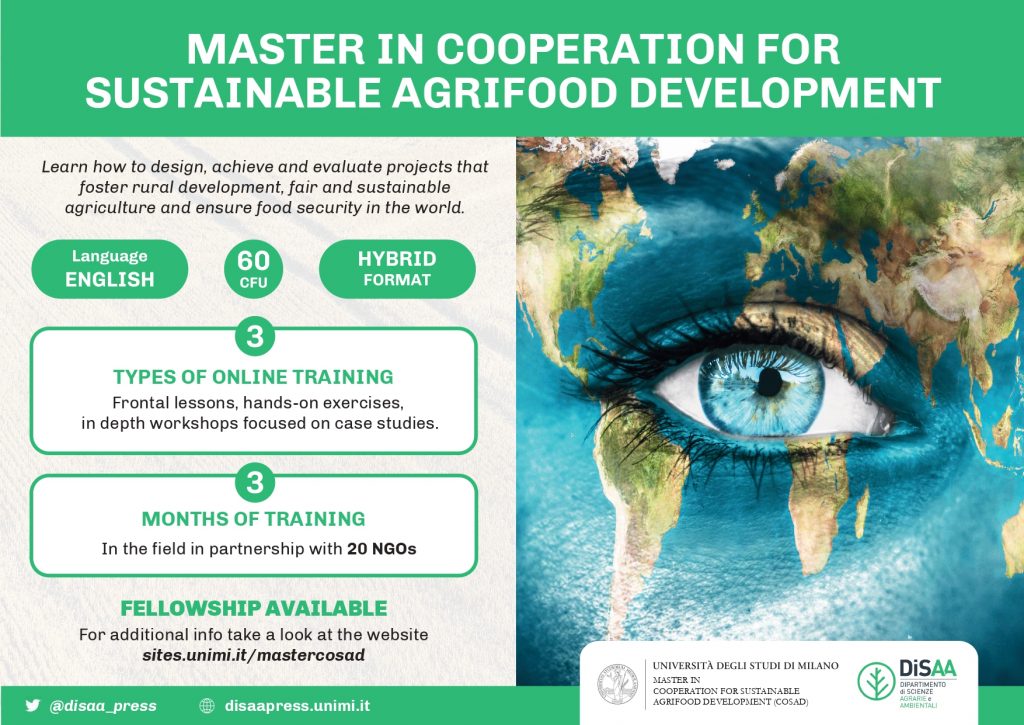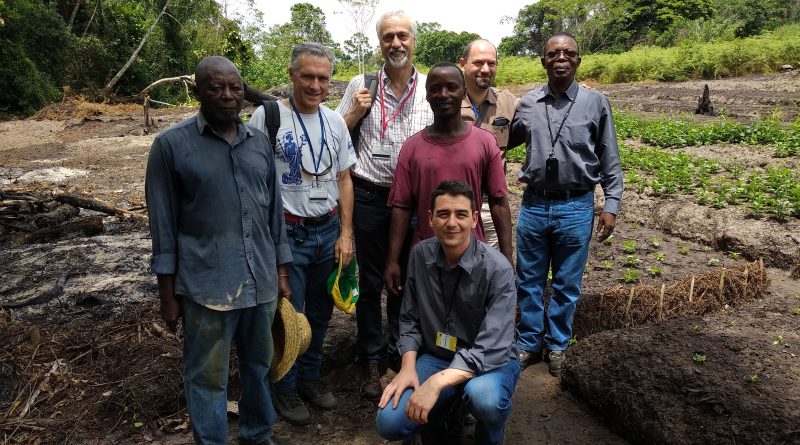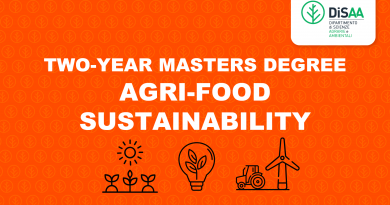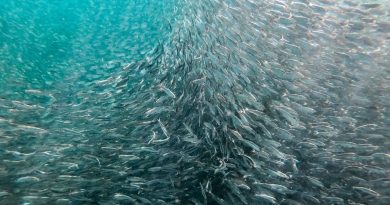#MeetTheProfessors
Interview with Professor Guido Sali, PhD in Agricultural Economics, appointed in 2015, UniMi Rector’s delegate for cooperation issues, is also the Director of the New Master in Cooperation for Rural Agri-Food Sustainable Development which will kick off in October 2022.
Professor, what’s the recipe for a good and effective cooperation in the field?
The two pillars on which the university sets out its cooperation activities involve the agri-food and health sectors. We work hand in hand with NGOs active on the ground to get practical or technical advices either in the projects’ implementation or ex-post evaluation in order to understand how interventions on the ground can be improved and become more effective. We are well aware of the importance of training on these issues, that’s why we set up a new Master in Cooperation for Rural Agri-Food Sustainable Development this year.
How is the Master structured?
First of all, it is a master’s degree in English held in a hybrid format, so you can enrol even without ever coming to Milan.
Long distance learning after these two years of Covid became quite popular…
Yes but most and foremost, we want to give this course an international profile, so we expect students from all over the world. We already received interested students from Haiti and Congo and I am sure students from other countries will show up. We aim at having an international group.
Tell me how the lessons will be structured.
The lessons are divided into: (1) classic face-to-face classes, (2) seminars with top-level contributions and the analysis of key studies coming from the operational world already working on the ground, but also by senior EU and UN officials to provide students with an broad geopolitical picture of the development cooperation situation. (3) finally, there are exercises where students will be required to work in teams and to examine and address specific issues.
Give me some examples.
There are different type of projects: from policy and context analysis, to project design, from broad strategies of intervention to specific issues, such as the field irrigation with remote sensing, or the assessment of an uncultivated territory to define the best way to proceed. In fact, the projects are designed, developed and packaged by the students, their evaluation depends on the project’s internal coherence.
What are the criteria to get access to the Master?
In order to maximise the creativity of the classroom, we have decided to allow access to university backgrounds of various kinds. In line with what stated by MIUR, backgrounds’ ‘contamination’ make possible to see the problems and, consequently, the possible solutions not from a specific angle but from a multidisciplinary one. I believe it is an important aspect to consider, especially when it comes to development cooperation.
In terms of job perspectives, what can a student do after this Master?
The graduate can deal with miscellaneous aspects of development and cooperation, depending on what it is his/her interest and passion. Students can play the role of consultant in the technical and agronomic design, and evaluation of projects or can be the collectors of a socio-economic data for an area as a starting point for a project initial assessment.
And then there are the NGOs with which the Master’s degree is affiliated.
In most cases, they have projects already in progress. Our students will be able to take part in existing activities.
It seems to me very interesting, also in terms of future perspective.
The partnership with a large number of NGOs is undoubtedly one of the strengths of this course. They not only provide case studies to be dealt within the workshops, but can also welcome the students in the final traineeship phase.
How long does the traineeship last?
Approximately three months. I believe there will be the possibility to make a good matching between students’ interests and available projects. The Ministry of Foreign Affairs has also said that it will welcome our trainees.
Is there a chance to stay in the projects?
Well, it depends on the projects. I believe that NGOs have the opportunity to continue their relationships with the students doing the traineeship. The impact on employment at the end of the year would certainly be positive.
I know that there are also scholarships available.
Yes, the university offers 4 scholarships in which the admission fee is reduced by 75 % and 4 scholarships in which the quota is reduced by 50 %. This is important for us as it allows the participation of those with economic problems as ISEE calculation (University Certificate of Income) is one of the two pillars taken into account for the scholarships, as well as university merit and origin.
Could you mention an international project that marked a positive change towards the local population?
I think straight away of Lebanon, where in cooperation with NGO AVSI, in 2007, I led a project to restructure the irrigation system of a field, divided into very small properties with many beneficiaries. The field was bombed during the clashes between Lebanon and Israel in 2007. In rehabilitating the irrigation system, we proposed moving from open-cast canals with ditches to a pressurised system with underground pipes and nozzles, in order to improve the efficiency of the use of water resources, which is particularly scarce in that area, thus giving farmers the opportunity to attack their outlets to irrigate. What was for us a simple change of instrumentation, for the local population was also a cultural change. While before the intervention the water sought directly from the ditch was taken, the new system required coordination and organisation. Today, 15 years after its implementation, the system is still in place, showing that every time the activity is continued and sustainable, long term usefulness can be achieved.
Perhaps a change of approach is the most difficult to implement and maintain…
Well in the case I mentioned you, we went step by step. First of all, we created a body to manage this. An association of water users was formed and fortunately remained alive after the end of the programme and this irrigation system continue to be managed at the community level.
Let us now talk about an unfortunate case, where many resources and energy have been spent and the project has not been followed up.
Our focus here is on the complex theme of the sustainability of development cooperation projects. Unfortunately, it is difficult to find continuity in the activities after the funding ends and the NGO has to close its activities. This is due to the difficulty of local systems in making certain interventions, without falling down on external resources. For this reason, one of the topic we mostly focus in is training and capacity building, or knowledge transfer in order to find long lasting opportunities.
It seems to me to be a meaningful approach.
It has become a general reflection, which has shown that there is a need to invest in training. In the past, UniMi wanted to launch the construction of an agricultural faculty in Burkina Faso and Côte d’Ivoire, also taking the advice of the Italian Development Cooperation Agency (AICS), but it did not happen.
That’s the reason why the Master’s degree will be also by remote?
Yes. It is a concrete way to ensure frequency and participation even for those who are unable to come to Europe for various reasons.
Then I think it is also a special historic moment to talk about issues such as food security and territorial sovereignty.
If I think to the war in Ukraine, I would say that there have been wars in Africa that have been continuing for years, that nobody has spoken about and that unfortunately do not mention any de-escalation. I believe that the current war between Russia and Ukraine more than impacts on food security will create a new geopolitical and political order strictly linked to food security. Everything that was previously coming from warring countries will now come from China or from countries that look forward to occupying “spaces left empty”. Africa’s dependence on China, which is already significant, will increase even more.
Indeed, but not only China…
In this context, the issue of financial resources for cooperation needs to be addressed.
In recent days, politicians talk about a 2 % of GDP in military expenditure.
In fact, there was also talks at United Nations level, to devote up to 0.7 % of GDP on cooperation. We currently stand at 0.2 %, so we are less than half. Perhaps, now it will be seen an even less relevant commitment as the debate about it, at least in Italy, is not very lively. One of the NGOs working with the Master, Link2007, has sent a letter to Parliament reminding that this commitment also exists and that it is perhaps more important than the military expenditure.
Unfortunately, the situation is not reassuring.
I believe that for a global balance it is important to create space and give resources to everyone. Perhaps I say something obvious but this belief is the key to secure peace around the world because in any case we see that all tensions have the same leitmotiv: interests or power of the individual versus interests of and for the community. What cooperation is about is the so-called peace diplomacy. But let us remember that peace requires a minimum of well-being: if a person is hungry, you are angry
Certainly, demographic growth does not help in this sense
Fighting for scarce resources will lead to difficult situations. If we fail to deal with the problems from another perspective, first and foremost in Europe, we end up more and more belligerent.
So, if I ask you what the most important quality a co-operator should have, what would you answer?
Empathy. Those working in development cooperation must be keen to engage closely with the communities with whom they operate. But a close relationship means to understand and comprehend what others think. The way in which life is structured changes depending on the cultural context. If the cultural leap is very high, comprehension is less immediate. For example, one thing I noticed in Sub-Sahariana is that we put the ‘culture of the measure’, but the measure is not the key element to act and do things. Effective and fruitful cooperation with local populations require an understanding of the reason why a thing is done. We, with a different mindset, we cannot simply assume that what others do is different.
What you say remind me of Ebano, my favourite book of Ryszard Kapuściński when he tells me about the concept of time for Africans. The bus leaves when it is full, not at a precise time, and everyone maintain calm.
It is not always easy. I sometimes got nervous about it. During the last mission to Congo, we had an appointment at 9 at Caritas and at 11 we were still waiting be picked up. What could I do? I believe that those who engage in such an activity should try to get into others’ shoes before criticising. But this is a worthy skill for life.

More info about the Master:
Official Website: https://sites.unimi.it/mastercosad/
Video Tutorial: https://disaapress.unimi.it/2022/07/11/new-master-in-cooperation-for-sustainable-agrifood-development/
Academic Offer Summary: https://disaapress.unimi.it/en/2022/03/25/masters-course-in-cooperation-for/



